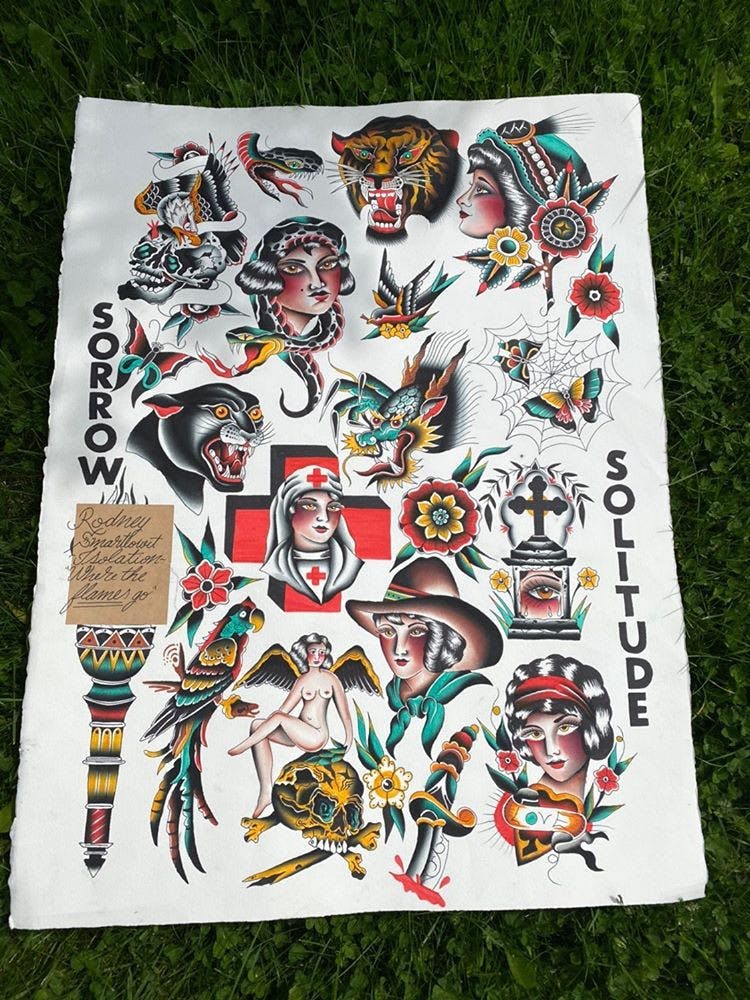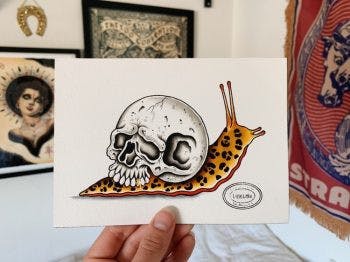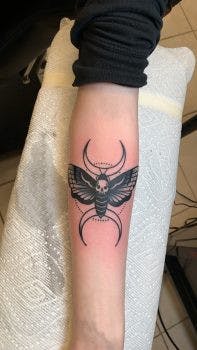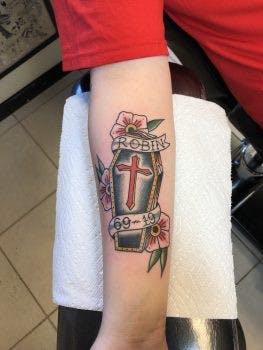
Opinion
By Kaelin Bell
I’ll always be reminded of my mother when I see unicorns because of the tattoo she got when she was my age. I got a matching tattoo with my childhood best friend and it will always be a reminder of the best summer of my life. One of my closest friends at Western and I started talking because we have the same band’s lyrics tattooed.
Humans have been tattooing their skin for thousands of years, and in many cultures tattoos hold sacred and significant meaning. In modern Western cultures, tattoos allow the wearer to express themselves in an often immediately visible way, memorialize their loved ones, showcase art on their bodies and so much more.
Tattoos have a way of connecting us and setting us apart from each other simultaneously, and the experience of letting someone permanently mark your skin can be very powerful.
When your line of work is almost entirely characterized by being in close proximity to other people, what do you do in the face of a global pandemic? For tattoo artists and their regular customers, this question has been nagging for months.
Lisse Litka is a tattoo apprentice at Lifetime Tattoo in my hometown of San Diego, California who began tattooing clients and making an income off of tattooing shortly before the pandemic shut down her shop. “I love tattooing and couldn’t fathom not coming to work everyday for an unforeseen amount of time,” Litka said.

Litka has been working toward becoming a tattoo artist for three years and was taking strides to further her career that she had waited long to take.
“For it all to come to a screeching halt was disheartening,” Litka said. “I understand the pandemic is much bigger than my career, but it’s still a scary feeling not knowing when I’ll be able to pick up and start tattooing again. I can’t help but think about all the progress I could have made by now.”
While she can’t tattoo, Litka is taking advantage of her time away from work by focusing on other elements of her life that are important to her, like reconnecting with friends, family and herself.
“We aren’t always what we accomplish and I placed too much of my self worth into how well I can paint or tattoo when that really has nothing to do with my value as a person. I’m a lot more than an artist and I’m thankful I can eventually go back to work with a refreshed mindset on tattooing.”

Before she started tattooing, Litka took commissions and sold her artwork, which she has resorted back to doing in the wake of the pandemic to supplement her income.
“I think what people can do to support my work and other artists’ work is either to request a commission or simply like, comment and share my work,” Litka said. “It means a lot to be able to work still and it helps me keep working if you simply share my artwork, and I know that helps out fellow artists and tattooers as well.”
You can find Litka’s work on her Instagram page.
Collette Strickler is graduating from Western this spring and has accumulated many tattoos over the past several years, citing Electric Boogaloo in Vancouver and Sabbath Tattoo in Bellingham as her favorite shops. Strickler’s tattoos make her feel more confident and allow her to express herself in an eye-catching way.
“Because of the pandemic, tattoo artists not only lose their income, but they can’t do their favorite activity,” Strickler said. “I think the best way to support artists right now would be to purchase the physical artwork that they may have for sale.”
“Not being able to tattoo is a bummer, especially since we just got out of winter which is kind of a slower season,” tattoo artist Rodney Smartlowit said. Smartlowit works at Sabbath Tattoo in downtown Bellingham and has been supplementing his income during the pandemic by selling his artwork and taking commissions, whether it’s painting, drawing, digital art or even sewing.
“If I were to give anyone advice on how to support artists, I’d say to just buy whatever they have to offer,” Smartlowit said. “Repost what they have so more folks are exposed. Small businesses are suffering, but at the same time we’re all kind of staying afloat by supporting each other. Even though this pandemic has been awful, it really shows how much of a supportive community we have.”

You can find Smartlowit’s work on his Instagram page.
For Samson Buckholtz of Ink City Tattoo in Bonney Lake, tattooing runs in the family. “Ink City Tattoo is family run and owned and has been in business for 15 years,” Buckholtz said. Buckholtz, who has been tattooing for three years and his brother who has been tattooing for 10 years were mentored by their father who has over 30 years of experience.
Buckholtz was shocked when they had to close down the shop and never thought that the shutdown would last this long. Like other artists, he has been supplementing his income by taking painting commissions and selling merchandise from the shop.
“A huge issue that is affecting us and small businesses in general is not getting unemployment,” Buckholtz said. “We may qualify for it, but after days upon days of calling and filing online I haven’t gotten any relief or answers.”

Like the other artists I spoke to, Buckholtz relayed the message that the best way to support tattooers right now is to purchase their goods online and share their artwork on social media.
“If there was to be anything good out of this, I would say my creativity has been taken to a new level,” Buckholtz said. “Being able to put all of my focus on personal projects has been a plus as well; sometimes I see myself setting projects aside when the normal workload is pretty heavy so it’s nice putting my full attention to them.”
You can find Buckholtz’ work on his Instagram page.
Thanks to online resources, tattoo artists are able to supplement their regular in-shop income. Buying a tattoo artists’ artwork is also a wonderful way for people who can’t afford a tattoo or commit to a tattoo to support artists without being permanently inked.

Supporting tattoo artists during this tumultuous time is equally as important as supporting any other small artist or business. These creative and hardworking people, like many of us, have temporarily lost their livelihoods, as well as their hobbies.
If you have the means and are looking for some new artwork for your home, consider supporting a tattoo artist by commissioning them or purchasing their existing work.





